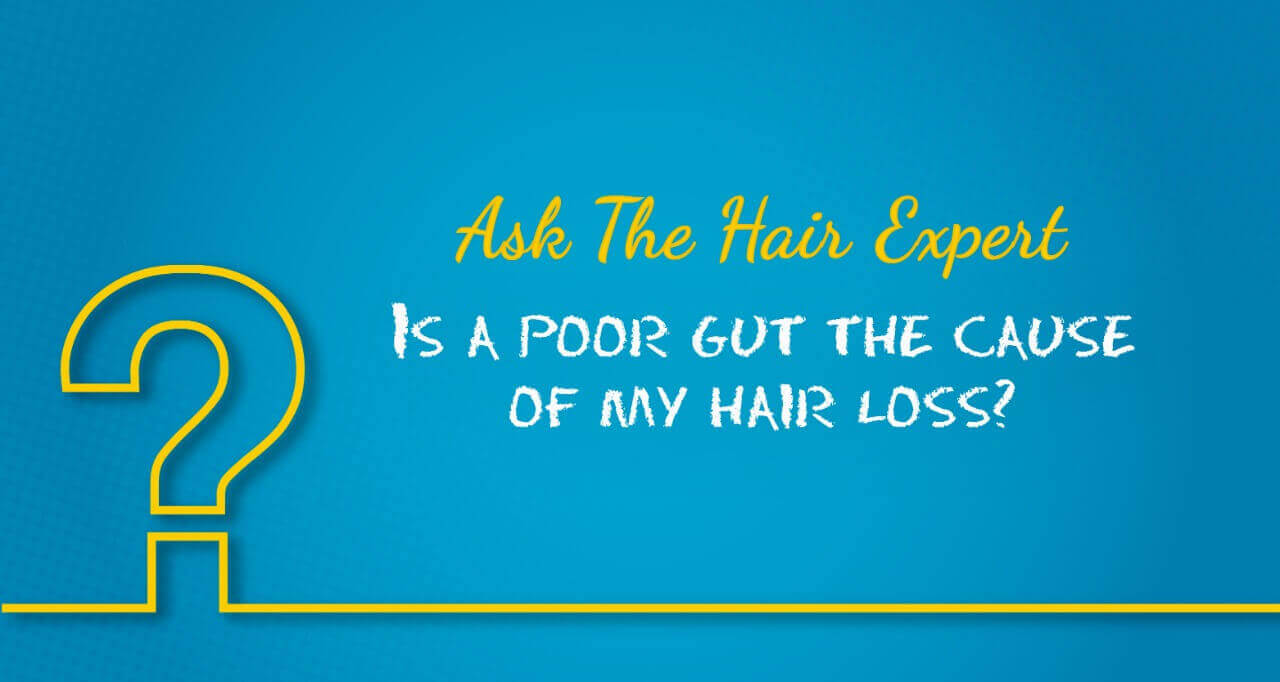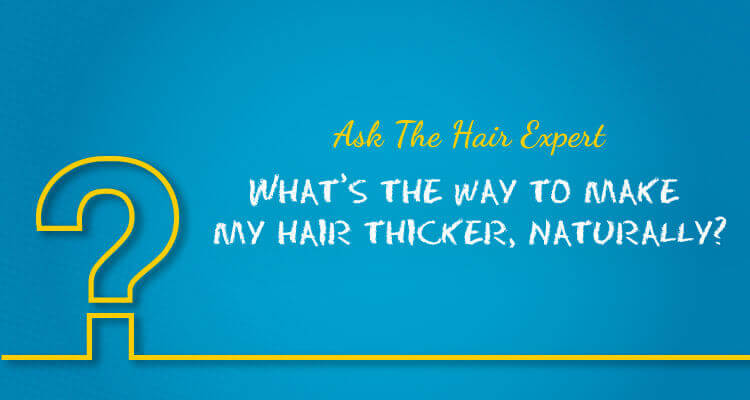Hair. That part of the human anatomy which is given great importance – closely linked with self-image, prestige and confidence. Hair is traditionally, and to this day, accorded a significant place in the overall consideration of gender and sexuality. The desire for beautiful hair is universal. Gender no bar. Age no bar.
You can strut around in designer wear inspired by the international runways, and coordinate your look with the most fashionable accessories, but what truly settles the score is the crop on your head. Your hair can make or break your look. There is more truth to this than we would perhaps admit!
While the above is widely known and acknowledged, what is often forgotten or even ignored, is the fact that your Hair is also your body’s barometer. It’s not just about the external appeal.
Understand the importance of your Hair
What do we mean by hair being the body’s barometer?
It indicates good health or the lack of it.
The hair barometer swings up and down, reacting to drugs, diet, hormonal changes, fluctuation in weather and emotional disturbances. A number of disorders like anaemia, thyroid/parathyroid problems, hormonal imbalance, nutritional deficiencies and problems related to general health are signalled out by your hair. Hair loss is a major symptom for many health disorders, for instance, cardiac problems, cancer, Addison’s Disorder, Cushing’s Syndrome, PCOD, auto-immune problems, kidney failure, thrush, fungal infections, ringworm, viral/ bacterial infections and even general weakness of the body might leave its trail in your hair. Scalp and hair problems are the first signs that something is wrong, internally.
Your hair reacts swiftly to changes in your body. It is nourished directly by the bloodstream and any change in blood content on account of medication, hormones or lack of nutrients results in hair and scalp-related problems – hair loss being the most common and immediate tell-tale signal.
Hence, beyond doubt, hair & hair care plays a very crucial role – it being not just an ‘accessory’, but for your overall well being!
Hair and scalp concerns have to be given its due importance. Ignoring your hair is tantamount to ignoring your body and its overall health.
Importance of Hair Care
Hair is perhaps one of the first things that you notice about someone? A stand-out feature? How many movies have you seen where a character changes the hair colour or style to con?! Good or bad, hair is noticed, more than you’d want, especially when you have issues with it!
Apart from the social stigma (unfortunately) that comes with sporting bad hair or displaying hair loss, hair health is a direct reflection of your overall health. And good hair comes with good care – to your hair and body.
We have briefly touched upon how important your hair is, as a part of the body. As much as it signals out what’s wrong internally, it can also absorb a lot of stress, pollution and other external elements – and internalise it! It works both ways! This automatically indicates how important it is to care right for it.
Do check-in on our vast collection of blogs on hair care and its importance.
Just as you follow certain routines to ensure your body’s hygiene and health is maintained, your hair & scalp need focussed care too.
Haircare is, and should always be, deeply rooted in science. Not everyone has the same kind of hair and each hair type needs a different kind of care. It varies from person to person – be it the type of hair product, oiling or washing routine, diet, need for hydration, need for treatments… No one solution fits all.
You hence need someone who knows and understands this to help you figure your hair and its needs out!
Science of Hair & Scalp Care
Every hair has a story to say. And it is scientific.
Question is, are you listening? Are you deciphering it right? Are you addressing what it needs?
Trichology and Trichologists exist to help you figure this out – to understand you and your hair, as one unit, and help you with holistic solutions that would resolve concerns with a 360* view.
Trichology is the science of hair and scalp, in health and disease. The Greek word ‘Trikhos’ means ‘Hair’ and ‘Logy’ means ‘Science’. Simply put, trichology and the masters of this science – the trichologists, help you understand the cause behind any hair/scalp problem and guide on its treatment.
Understanding hair and scalp concerns…and the role of a Trichologist
It is very important to understand that most hair and scalp problems are progressive disorders. The symptoms build over time – sending you signals throughout. It is hardly ever overnight and there is always an underlying root cause.
Understanding a hair/scalp problem starts with understanding your medical case history, your lifestyle, your habits, your daily routine, your hair care regimen (if you have one!)… It is not one stand-alone element to be studied. Having read the above notes on the importance of hair and hair care, you can appreciate this.
Unfortunately, there are many misconceptions and myths around hair care, and it is often forgotten that it’s not just about the external appeal. Haircare and treating hair problems is hence just left to changing oils or shampoos and not quite taking the effort to identify the root cause. The same reason why seeking professional help in this regard is also not thought of!
Trichology, as a diagnostic science, was in fact unknown in India, before Dr Sonal and Dr Apoorva Shah, founders of RichFeel, pioneered it in the country. Over time awareness has been built, but the remarkable solutions that this field offers haven’t been quite tapped to its full advantage by people.
If you have a hair or scalp concern, a trichologist is the most appropriate professional to seek advice from. A visit with the trichologist helps you understand the signals your hair is sending out, decipher the root cause and treat it right.
When you invest time and effort, as you do with a health check-up periodically, to get a Tricho- check, you will spot the symptoms, take timely action and pin the problem before it progresses.
What happens during a Tricho Consultation
This involves a one-to-one sitting with a trichologist, and undergoing an analysis of the hair & scalp to know the strength/ structure of the hair and scalp condition. It involves a step-by-step process that goes something like this:
- Detailed medical case history, diet & lifestyle discussion
- Physical Hair & scalp check
- Detailed diagnostic process – Follicular Count Test + Capilloscopy – For Scalp Analysis
- Clear diagnosis drawn on the basis of above
- Curative & preventive care prescribed – treatment, medication, diet & lifestyle modifications, as needed.
- Tricho Analysis – Hair epilation for further analysis where need be.
This process gives the trichologist a complete insight into your hair and scalp condition. An in-depth consultation paves the way forward for individualized external and internal treatment. Internal treatment involves intake of necessary food supplements and dietary regime. External treatment involves the prescription of tricho-active products and treatments/ solutions.
Let’s give you a more in-depth look at some of the diagnostic elements of your visit, to help you understand the gravity of the consultation.
Hair & Scalp Analysis
After the review of your medical case history and basic demographics, the following are some diagnostic tests that are undertaken, as need be for each patient.
- Capilloscopy – It is a non-invasive technique where a capilloscope, which can magnify an image and capture it on a video screen, is used. This helps understand the hair density, diameter and the magnification enhances the images of scalp & hair and detects the hair shaft in the follicle.
- Densitometry – This test helps to determine the density of the hair which in turn helps to know the hair shaft diameter, degree of miniaturization, response to medication and also growth after hair transplant.
- Sebum Analysis – This test helps in measuring the amount of sebum in a particular area by means of an applicator. It is used to determine the effectiveness of the used treatment and the efficacy of the shampoo in use. Over-stimulation of the sebaceous glands leads to an increase of the sebum production often seen in patients with androgenetic alopecia.
- Trichogram – This analysis is done to check the effect of pollutants and to guide you on further care if needed. It helps to quantify abnormal or normal hair fall. It helps understand the A / T ratio = Anagen / Telogen Ratio, whether you are suffering from say, diffuse temporary hair loss or permanent hair loss, Loose Anagen syndrome or Telogen effluvium.
Further, if need be, some important blood tests are also called for, to get greater insight of hair and scalp problems:
- Free testosterone
- SHBG
- Thyroid
- Prolactin
- Blood Sugar (Diabetes)
- Serum Ferritin
As evident from above, the process, while is a simple consultation exercise for you, can throw light on everything about your hair and scalp! From essential nutrients that you are perhaps missing out on, to the best way to wash your hair, to which hair products may suit you, to combatting serious hair/scalp diseases, Trichologists have all the answers!
Benefits of periodic visits to your Trichologist
Here are some immediate benefits that you draw from regular tricho-checks.
- Know your hair’s statusIn modern times, you will find a number of ways to determine common hair problems like dandruff, hair loss, alopecia, baldness, greying hair and what not! However, a periodic visit to the hair doctor keeps a check on the status of your hair’s health and can help diagnose any problem way before it is likely to turn into a big concern.
- Know your scalp’s statusScalp care is most often forgotten. Scalp is to your hair what soil is to the plant! Do read our blog on importance of scalp care. A healthy scalp ensures healthy hair. Not to mention, many underlying concerns are indicated through the scalp, into the hair. Diagnostic tests such as capilloscopy help keep track of your scalp’s health status. Your hair doctor can help you tale corrective action if need be before it is too late.
- Keep a tab on your hair density, thickness & strengthOne of the basic tests conducted during your Tricho-check is the study of your hair follicles, hair density and diameter. Many hair concerns are often not noticed by us easily in our daily routines.For instance, hair thinning is something that is very common but not easily detectable by the naked eye. You notice that your hair is thinning only once you have progressed way into it and you start noticing a visible scalp!A periodic hair & scalp analysis will help you keep a tab on your hair’s quality and the strength of your follicles. It ensures that you take care of those follicles before they are gone! The right treatment at the right time can save you from all the hair-stress you don’t deserve!
- Effects of your diet & lifestyle on your hairModern lifestyles, eating and drinking habits, tough commute routines largely challenge human health and hair. It is extremely difficult to cope with the changing trends and also take care of health at the same time. As we all know, a balanced diet with adequate Hair foods and sufficient water is a must for healthy hair. A trichologist understands your present diet, studies your medical history, diagnoses the cause and problem and only then recommends vitamins and minerals designed specifically for hair, and in the proportion that you need!Further, course correction along the way is key. As you age, as your lifestyle keeps changing, your nutritional needs also change. Periodic visits help you keep a tab on the diet changes that you may need to make and help keep up.
- Choosing the right hair products & care regimenChoosing the right products for your hair is one of the most important tasks. And one where most people go wrong. You go with the product that’s most advertised by your favourite celebrity or most popular in your friends’ circle or on sale that month! All the wrong reasons to pick a product!Your hair product and hair care regimen should be something that is based on your hair and scalp condition. Every hair has a different story and hence, a different problem, a different cause, a different solution! And these also change with circumstances, age and many other factors. A periodic visit to your hair doctor will help you understand what’s best suited to you!
Trichology offers a wide range of treatments and solutions, surgical / non-surgical, non-invasive organic options, that can help you solve your problems in a manner that is best suited to you. From tricho scalp treatments for hair loss to combatting hair thinning, hair colour damage, hair restorations, hair fertility treatments – your Trichologist can help you restore your crowning glory with ease and in the most scientific manner.
Trust we have conveyed the importance of hair care, hair analysis and significance of consulting a professional trichologist periodically. Seeking advice/suggestions from hair doctors not only take you on a tour through your hair’s story but also help tackle problems. And also ensure that you avoid bigger concerns of hair damage and hair loss by treating them right in time.
When was the last time you went to a trichologist? Not ever? Or don’t remember? That’s a siren going up right there! It all begins with a single meeting with a trichologist! Having a discussion on your lifestyle, hair care routine and diet can be an eye-opener! After all, your hair, your care! Time you booked an appointment!
You can also follow our blogs on haircare, hair trivia, hair problems, hair treatments or other things related to HAIR. Follow our social media handles to get quick handy tips, information and gather generic knowledge related to hair and scalp on a daily basis!



